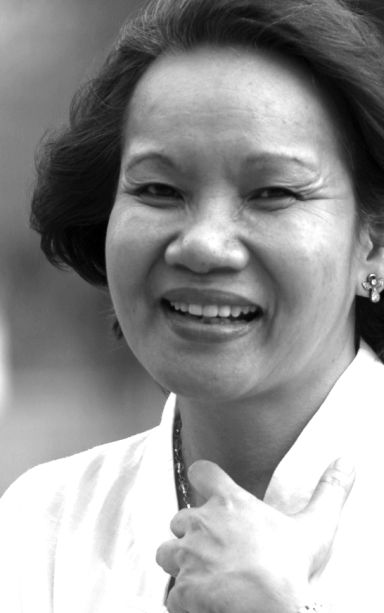
LOGARTA
He had chosen to guide us in reflections on silence and virtue. He said Jesus knew how to use silence very effectively as in the case of the woman caught in adultery; he spoke not a word to the accusers. Fr. Alfonso stressed that from the very beginning, God was present in the stillness as he was on the verge of his creative work — bringing about everything from nothing. “He speaks in the language of silence.”
He reminded us of how several times Jesus was seeking solitude for a time of silence, prayer. Many positive things can emerge out of silence. “Silence allows us to be attentive to the spirit. It can deepen relationships. Through meditation and contemplation, we experience God and realize the presence of God in our lives. God belongs to everyone; we have access to Him not only in the usual ways of praying we use. In silence, we somehow enter a sacred space. Moments of silence open opportunities for discernment. It provides a chance to reflect on the consequences of our actions. In silence we can find rest; we can then recharge to discover God.” There are also those “afraid, disturbed by silence.” Silence can also be “subversive” — shake up and provoke response.
He also spoke of an imposed silence and the many “silenced” in various societies: those in the peripheries who have no voice; those terrorized into silence. God is close to those suffering in silence as He asserted with Job: “I hear you.” He invited us to “listen and be attentive to the cries of the silenced for Jesus is present in their cries.” So he led us in praying a Litany for the Silenced. Hearing these, he reminded us that we also need to respond to what we hear from them.
He humbly admitted that there had been times when the church had a tendency to silence and pointed out that St. Pope John Paul II had apologized for these occasions.
He prepared beautiful, relevant music as we pondered on his provocative thoughts. They also readied candles to be lighted as expressions of being especially moved by the thoughts. So many actually were; there were not enough candles for everyone.
Fr. Alfonso began the discussion on virtue with questions: Why do we do good? Or do extreme gestures offering these to God? Were we behaving properly out of duty? Or were we seeking a reward? He quoted John that God had not written the law “in stone but in our hearts.” He proposed that “conversion meant rediscovering virtue.” In this journey we start with grace; “we have to be graced.” Then we proceed to conviction, faith. Then we move to action. We grow towards behaving authentically with mercy and compassion: feeling for others, loving even our enemies. We habitually do good and give the very best of ourselves because it is who we are, it is part of our identity! We have to work at becoming Christians for real.
We went through an examination of conscience. For our healing, we were anointed. We are very grateful to the Redemptorist fathers, especially to Fr. Alfonso and Fr. Tito, for those evenings of special encounters with our God.